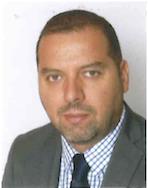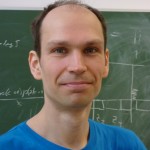Keynote Speakers
Keynote 1 - Everything You Want to Know About Memristors But Are Afraid to Ask
Abstract
This lecture classifies all memristors into three classes called Ideal, Generic, or Extended memristors. A subclass of Generic memristors is related to Ideal memristors via a one-to-one mathematical transformation, and is hence called Ideal Generic memristors. The concept of non-volatile memories is defined and clarified with illustrations. Several fundamental new concepts, including Continuum- memory memristor, POP (acronym for Power-Off Plot), DC V-I Plot, and Quasi DC V-I Plot, are rigorously defined and clarified with colorful illustrations. Among many colorful pictures the shoelace DC V-I Plot stands out as both stunning and illustrative. Even more impressive is that this bizarre shoelace plot has an exact analytical representation via 2 explicit functions of the state variable, derived by a novel parametric approach invented by the author.
Speakers

Professor Leon Chua is the father of Nonlinear Circuit Theory and the inventor of the memristor, Chua’s Circuit, and Cellular Neural Networks (CNN). He is an Emeritus Professor at the University of California, Berkeley and a permanent Distinguished Professor at the Techniche Universität München, Germany.He was the first recipient of the IEEE Gustav Robert Kirchhoff Award in 2005 and was awarded the IEEE Neural Networks Pioneer Award in 2000. Elected an IEEE Fellow in 1974, he has received many international prizes, including the IEEE Browder J. Thompson Memorial Prize, the IEEE W.R.G. Baker Prize, the Frederick Emmons Award, the M.E. Van Valkenburg Award (twice), and the 2005 Francqui Award from Belgium. He has been awarded seven USA patents and 14 Honorary Doctorates from universities in Europe and Japan.He was elected a foreign member of the European Academy of Sciences and the Hungarian Academy of Sciences. In 2010, he was awarded a John Guggenheim Fellow and the Leverhulme Trust Visiting Professorship. In 2011 he was elected an Honorary Fellow of the Institute of Advanced Study at the Techniche Universität München, Germany, and also awarded a Royal Academy of Engineering Distinguished Visiting Fellowship within Imperial College London. In 2013-2015 he was awarded the Marie Curie Fellowship by the European Commission and was also recently awarded a Diamond Jubilee International Visiting Fellowship with the University of Southampton, UK

Fernando Corinto received the Masters' Degree in Electronic Engineering and the Ph.D. degree in Electronics and Communications Engineering from the Politecnico di Torino, in 2001 and 2005 respectively. He also received the European Doctorate from the Politecnico di Torino, in 2005. Prof. Corinto was awarded a Marie Curie Fellowship (within the 'Marie Curie Actions' under the Sixth Framework Programme) in 2004.
He is currently Associate Professor of Circuit Theory with the Department of Electronics and Telecommunications, Politecnico di Torino. His research activities are mainly in the areas of nonlinear circuits and systems, locally coupled nonlinear/nanoscale networks and memristor nanotechnology.
Prof. Corinto is co-author of 6 book chapters and more than 110 international journal and conference papers. He has been reviewer of several papers for international journals and conferences. Since 2010, he is Senior Member of the IEEE. He is also Member of the IEEE CAS Technical Committees on “Cellular Nanoscale Networks and Array Computing” and “Nonlinear Circuits and Systems”. Prof. Corinto was the Technical Program Chair for the 13th and the 14th International Workshop on Cellular Nanoscale Networks and their Applications and the co-organizer of the 3rd and 4th Memristor Symposium. Dr. Corinto is Visiting Professor at Peter Pazmany Catholic University of Budapest, since 2007. Prof. Corinto is currently Associated Editor of the IEEE Trans. on Circuits and Systems - I and of the International Journal of Circuit Theory and Applications. He is also in the Editorial Board of the International Journal of Circuit Theory and Applications since January 2015. Prof. Corinto is Vice Chair of the COST Action “Memristors - Devices, Models, Circuits, Systems and Applications (MemoCiS)”.
Keynote 2 - Computing with phase change resistive memory devices
Abstract
Phase change resistive memory (PCRAM) has recently emerged as a promising new nonvolatile solid-state memory technology. However, the applications of PCRAM devices could go well beyond memory. They exhibit significantly rich behavior governed by an intricate feedback interconnection of electrical, thermal and structural dynamics. There is also inherent stochasticity associated with the way these devices operate.
In the first part of the talk I will give an overview of some of the recent insights we gained in understanding the electrical transport, thermal transport and structural dynamics. I will also present a radical rethink of the device concept to significantly enhance the efficiency and noise characteristics of these devices. In the second part, I will show several examples where these devices can be utilized for computational tasks within the framework of neural networks and otherwise.
Speaker

Abu Sebastian was born in Kerala, India. He received a B. E. (Hons.) degree in Electrical and Electronics Engineering from BITS Pilani, India, in 1998 and M.S. and Ph.D. degrees in Electrical Engineering from Iowa State University in 1999 and 2004, respectively. Since 2006, he is a Research Staff Member at IBM Research - Zurich in Rüschlikon.
His research has spanned several topics broadly related to dynamics and control at the nanometer scale. Research interests include emerging memory and cognitive technologies, scanning probe technologies, and enabling tools for nanotechnology such as nanoscale sensing and nanopositioning. He has published over 100 articles in scientific journals and conference proceedings on these topics.
Dr. Sebastian received the 2013 IFAC Mechatronic Systems Young Researcher Award for his contributions to the field of mico-/nanoscale mechatronic systems. He is also a co-recipient of the 2009 IEEE Control Systems Technology Award and the 2009 IEEE Transactions on Control Systems Technology Outstanding Paper Award. He is a vice-chair of the IFAC Technical Committee on Mechatronics and serves on the editorial board of the journal, Mechatronics. He also serves on the memory technology committee of the IEEE International Electron Devices Meeting (IEDM). He is a senior member of the IEEE.
Keynote 3 - Brain-inspired models of stochastic computation and learning
Abstract
Nanoscale electrical devices such as memristors are among the most promising new technologies for artificial information processing systems. However, in order to deal with their inherent stochastic properties, novel concepts and architectures are needed. Consequently, interest in stochastic models of computation has increased recently. Biological neural systems may provide valuable insights, since the astonishing computational capabilities of these systems are based on computing elements with high degrees of variability, noise, and unreliability. For example, information transfer by neocortical synapses can be quite reliable for some synapses, but one can also find synapses that are extremely unreliable. This indicates that stochastic synaptic release may not merely be an unpleasant constraint of the molecular machinery but rather an important computational feature of cortical synapses. In other words, it may have turned out during evolution that it is better to utilize noise for computation rather than to avoid it.
In this talk, I will present several brain-inspired models of stochastic computation and learning. These models provide novel paradigms for how noise can be used as a computational ressource for probabilistic computation, problem solving, and learning.
Speaker

Robert Legenstein received his PhD in Telematics from Graz University of Technology, Graz, Austria, in 2002.He is currently an Associate Professor at the Department of Computer Science, Graz University of Technology and the deputy head of the Institute for Theoretical Computer Science. Dr. Legenstein is especially interested in biologically inspired neural computation. His research interests include learning in neural systems, reward-based learning, information processing in spiking neural networks and stochastic computation. He was coordinating the EU project “Novel Brain-Inspired Learning Paradigms for Large-Scale Neuronal Networks” where synaptic plasticity in biological neural networks was studied and he is investigating stochastic memristor-based computation in the EU project PNEUMA. Dr. Legenstein is associate editor of IEEE Transactions on Neural Networks and Learning Systems.






